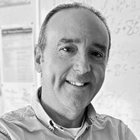 |
| WORKSHOP 2 |
|
 |
| . |
|
|
Ramon Aguado
ICMM-CSIC, Spain
Invited ŌĆō Workshop 02: Quantum matter: theory & simulations
Ram├│n Aguado is a Research Professor of the Spanish Research Council (CSIC) working at the Institute of Materials Science in Madrid, where he leads the Quantum Materials for Quantum technologies group (https://wp.icmm.csic.es/tqe/). Internationally recognized expert in Theoretical Condensed Matter Physics, his research focuses on the study of hybrid quantum materials and their applications in quantum technologies, including Majorana and Andreev based qubits. In recent years, his scientific impact has been reflected in high impact publications, many of them in collaboration with prestigious international experimental groups. His work has been recognized in several international rankings where he appears as a highly cited scientist. He is president of the Condensed Matter Physics Division of the Spanish Royal Society of Physics (RSEF) and coordinator of the Quantum Physics and Matter program of the State Research Agency of the Spanish Ministry of Science.
|
|
|
|
|
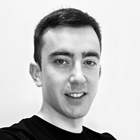 |
| INDUSTRIAL FORUM |
|
 |
| . |
|
|
Borja Aizpurua
Multiverse Computing, Spain
Invited - Industrial Forum
|
|
|
|
|
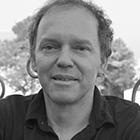 |
| TUTORIAL |
|
 |
| . |
|
|
Eric Akkermans
Technion, Israel
Turorial Speaker
|
|
|
|
|
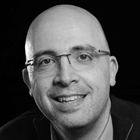 |
| WORKSHOP 1 |
|
 |
| . |
|
|
Jordi Arbiol
ICREA & ICN2, Spain
Invited ŌĆō Workshop 01: Quantum materials: growth, characterization & device fabrication
Prof. Jordi Arbiol graduated in Physics at Universitat de Barcelona (UB) in 1997, where he also obtained his PhD (European Doctorate and PhD Extraordinary Award) in 2001 in the field of transmission electron microscopy (TEM) applied to nanostructured materials. He also worked as Assistant Professor at UB. In 2009 he was appointed as┬Ā ICREA Professor┬Āand holds this position since then. From 2009 to 2015 he was Group Leader at Institut de Ci├©ncia de Materials de Barcelona,┬Ā ICMAB-CSIC. He was the President of the┬Ā Spanish Microscopy Society (SME)┬Āfrom 2017 to 2021, was Vice-President from 2013 to 2017┬Āand from 2009 to 2021 he was Member of its Executive Board. In 2018 he was elected as Member of the Executive Board of the┬Ā International Federation of Societies for Microscopy (IFSM)┬Ā(2019-2026). Since 2015 he is the leader of the Group of Advanced Electron Nanoscopy at┬Ā Institut Catal├Ā de Nanoci├©ncia i Nanotecnologia (ICN2),┬Ā CSIC┬Āand┬Ā BIST. He is Scientific Supervisor of the Electron Microscopy Area at ICN2 and BIST and the┬Ā Scientific Coordinator┬Āof the┬Ā Joint Electron Microscopy Center at┬ĀALBA Synchrotron┬Ā( JEMCA). He has been one of the founder members of the European Distributed REsearch Infrastructure for Advanced Electron Microscopy┬Ā( e-DREAM). Since 2023 he is┬Ā Associate Editor┬Āof┬Ā Nano Letters┬Ā(American Chemical Society).┬ĀHe received the┬Ā FWO Commemorative Medal┬Ā(Flanders Research Foundation) in 2021, the┬Ā 2018 BIST IGNITE Award┬Āand was awarded with the┬Ā EU40 Materials Prize 2014┬Ā(E-MRS),┬Ā 2014 EMS Outstanding Paper Award┬Āand listed in the┬Ā Top 40 under 40 Power List┬Ā(2014) by┬Ā The Analytical Scientist. In March 2025 he has published more than 520 scientific papers, with 35200+ citations and h-index: 105 (GoS) |
|
|
|
|
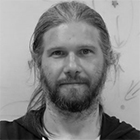 |
| INVITED |
|
 |
| . |
|
|
Mete Atature
University of Cambridge, UK
Invited ŌĆō Plenary Session
Mete Atat├╝re is a Professor of Physics and the Head of the Cavendish Laboratory, Cambridge. He completed his PhD at Boston University in 2002 and then worked as a Postdoctoral Fellow at ETH Zurich. He joined the Cavendish Laboratory in 2007 as an Assistant Professor and received his full Professorship in 2015. His research efforts straddle multiple material platforms for quantum networks and quantum sensing. He is the co-founder and Scientific Advisor of Nu Quantum Ltd. developing quantum network solutions. He is a Fellow of Optica, Academia Europaea, Institute of Physics, and Science Academy Turkey. He was awarded the IoP Thomas Young Medal and Prize in 2020 for his contributions in quantum technologies.
|
|
|
|
|
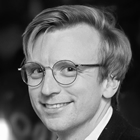 |
| INDUSTRIAL FORUM |
|
 |
| . |
|
|
Andreas Bengtsson
Google Inc, USA
Keynote - Industrial Forum
Andreas Bengtsson is a Research Scientist at Google Quantum AI. His research focuses on quantum information processing with superconducting qubits, with a particular interest in qubit calibration and quantum error correction. Prior to joining Google, he got his Ph.D. in 2020 from Chalmers University of Technology in the group of Jonas Bylander and Per Delsing. His doctoral research involved fabrication of high-coherence superconducting circuits, calibration and metrology of high-fidelity gates, and implementation of quantum algorithms. During his Ph.D., Andreas also spent time at the Massachusetts Institute of Technology in the group of William D. Oliver.
|
|
|
|
|
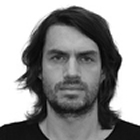 |
| WORKSHOP 3 |
|
 |
| . |
|
|
Mario Berta
RWTH Aachen University, Germany
Invited ŌĆō Workshop 03: Quantum information
I am a Professor of Physics at the Institute for Quantum Information RWTH Aachen University. I hold an honorary position as a Visiting Reader at the Department of Computing Imperial College London and I am a Visiting Research Associate Professor a the Centre for Quantum Technologies National University of Singapore. Previously, I was a Senior Research Scientist at the Amazon Web Services Center for Quantum Computing and a Postdoctoral Researcher at the Institute for Quantum Information and Matter Caltech. I obtained my PhD degree from the Institute for Theoretical Physics at ETH Zurich.
|
|
|
|
|
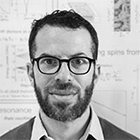 |
| INVITED |
|
 |
| . |
|
|
Patrice Bertet
CEA Paris-Saclay, France
Invited ŌĆō Plenary Session
|
|
|
|
|
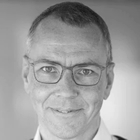 |
| KEYNOTE |
|
 |
| . |
|
|
Immanuel Bloch
Max-Planck Institute of Quantum Optics , Germany
Keynote ŌĆō Plenary Session
Immanuel Bloch is scientific director at the Max Planck Institute of Quantum Optics in Garching and holds a chair for experimental physics at the Ludwig Maximilians University of Munich. His scientific work is among the most frequently cited in the field of quantum physics and has helped to open a new interdisciplinary research field at the interface of atomic physics, quantum optics, quantum information science and solid state physics. For his research, he has received numerous international awards, including the Ko╠łrber European Science Prize, the Harvey Prize, the Zeiss Research Award, the Stern Gerlach Medal of the German Physical Society and was named Clarivate Citation Laureate for his work on quantum simulations.
|
|
|
|
|
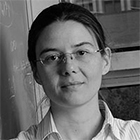 |
| WORKSHOP 5 |
|
 |
| . |
|
|
Paola Cappellaro
Massachusetts Institute of Technology, UK
Invited ŌĆō Workshop 05: Quantum sensing
Paola Cappellaro is the Ford Professor of Engineering at the Massachusetts Institute of Technology. She is a professor in the department of Nuclear Science and Engineering and in the department of Physics, where she leads the Quantum Engineering Group. She received a Ph.D from MIT followed by a postdoctoral fellowship at Harvard University (ITAMP). The goals of CappellaroŌĆÖs research are to design and control quantum devices for quantum simulations, computation, and quantum sensing. With collaborators, she pioneered quantum magnetic sensing using electronic spin defects in diamond (the Nitrogen-Vacancy center). Prof. CappellaroŌĆÖs work has been recently recognized by the American Physical Society Fellowship
|
|
|
|
|
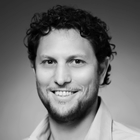 |
| INDUSTRIAL FORUM |
|
 |
| . |
|
|
Yonatan Cohen
Quantum Machines, Israel
Keynote - Industrial Forum
Dr. Yonatan Cohen - Quantum Machines - Entrepreneur; co-founder and ex-managing director of Weizmann InstituteŌĆÖs entrepreneurship program; completed his MSc and PhD in Prof. Moty HeiblumŌĆÖs lab at the Weizmann Institute of Science in Israel working on quantum electronics, superconducting-semiconducting devices, and microfabrication; published works in peer-reviewed journals; completed BSc in physics and math at the University of Washington; received the Ruth and Prof. Abraham (Edek) Blaugrund Prize for academic excellence (2018), awarded yearly to students from the Weizmann Institute of Science. Currently CTO of one of the leading companies working in quantum control.
|
|
|
|
|
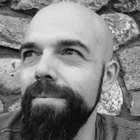 |
| INDUSTRIAL FORUM |
|
 |
| . |
|
|
Antonio Corcoles-Gonzalez
IBM, USA
Keynote - Industrial Forum
Antonio C├│rcoles is a Principal Research Scientist at IBM Quantum. He earned his PhD in physics at Royal Holloway University of London. During his doctoral studies, he worked under the guidance of Professor John Saunders, focusing on superfluid 3He in restricted geometries. After completing his PhD, Antonio moved on to a Postdoct position at the Cavendish Laboratory, UK, where he worked with Professor Sir Michael Pepper on hyperfine interactions in quantum wires. In 2010, he joined IBM as a Postdoct, becoming a Research Staff member in 2014 and a Principal Research Scientist in 2023. At IBM, he has worked on various aspects of quantum information processing with superconducting qubits, including materials, gates and measurements, validation, verification and benchmarks, quantum error correction, and quantum machine learning. Antonio is currently leading the integration of HPC and Quantum computing at IBM Quantum.
|
|
|
|
|
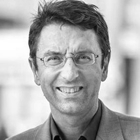 |
| WORKSHOP 2 |
|
 |
| . |
|
|
Reinhold Egger
Heinrich Heine University D├╝sseldorf, Germany
Invited ŌĆō Workshop 02: Quantum matter: theory & simulations
Reinhold Egger has been a full professor of theoretical physics at Heinrich-Heine-Universit├żt D├╝sseldorf since 2001. He has worked in many different areas of condensed matter physics, including nonequilibrium quantum transport, topological quantum matter, superconductivity and low-dimensional quantum field theory. He is part of the board of EPJB since 2011 and he is recipient of the Gerhard-Hess-Preis of the DFG and of the Physics Prize of the Akademie der Wissenschaften zu G├Čttingen.
|
|
|
|
|
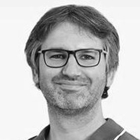 |
| WORKSHOP 4 |
|
 |
| . |
|
|
Pol Forn-D├Łaz
IFAE, Spain
Invited ŌĆō Workshop 04: Quantum Computing
Dr. Pol Forn-D├Łaz leads the Quantum Computing Technology group at IFAE in Barcelona since 2019, using superconducting qubits for quantum annealing and quantum sensing applications. Dr. Forn-D├Łaz is a co-founder of Qilimanjaro, developing superconducting analog quantum computers. With nearly 20 years in the field, Dr. Forn-D├Łaz has held research positions at TU Delft (PhD), with postdoctoral researcher experience at MIT, Caltech and IQC, and is recognized as a leader in developing these circuits for applications in multiple areas of quantum science and technology.
|
|
|
|
|
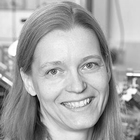 |
| INVITED |
|
 |
| . |
|
|
Katharina Franke
Freie Universit├żt Berlin, Germany
Invited ŌĆō Plenary Session
Katharina Franke studied physics at the university of Kiel and PennState. She carried out her PhD at Freie Universit├żt (FU) Berlin. After postdoctoral stays in Lausanne and Berlin, she first became a junior professor and then full professor at FU Berlin. Her group investigates electronic and magnetic properties of single atoms, molecules and nanostructures at surfaces by scanning tunneling microscopy and spectroscopy with a main focus on the interplay of magnetic adsorbates with superconducting substrates.
|
|
|
|
|
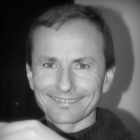 |
| INVITED |
|
 |
| . |
|
|
Marcel Franz
University of British Columbia, Canada
Invited ŌĆō Plenary Session
Marcel Franz is a Professor of Physics at The University of British Columbia and the Deputy Scientific Director at Blusson Quantum Matter Institute. He obtained his PhD at The University of Rochester in 1994 and worked as a postdoctoral fellow and McMaster and Johns Hopkins universities before joining the faculty of The University of British Columbia in 2000. An expert in theories of topological quantum matter, unconventional superconductivity and strongly correlated electron systems he made a number of significant advances in these fields, including the recent prediction of high-temperature topological superconductivity in twisted bilayers of cuprate superconductors.
|
|
|
|
|
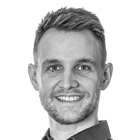 |
| INDUSTRIAL FORUM |
|
 |
| . |
|
|
Florian Froning
Zurich Instruments, Switzerland
Invited - Industrial Forum
Florian Froning is a Lead Application Scientist specializing in quantum technologies at Zurich Instruments. In his PhD work, he investigated quantum dots in semiconductor nanowires as hosts for spin qubits. Florian now applies expertise to advance quantum computing from the classical side. At Zurich Instruments, he works with users on solutions to enable and advance their research in quantum technologies. This role is particularly rewarding for him, as it offers the opportunity to work closely with scientists, explore innovative ideas, and contribute to the advancement of cutting-edge technologies.
|
|
|
|
|
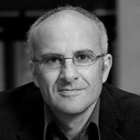 |
| KEYNOTE |
|
 |
| . |
|
|
Antoine Georges
Coll├©ge de France, France
Keynote ŌĆō Plenary Session
Antoine Georges is a theoretical physicist whose research focuses on interacting quantum systems, such as quantum materials with strong electronic correlations or cold atomic gases in optical lattices. He is one of the co-inventors of Dynamical Mean-Field Theory, for which he shared the 2006 Europhysics Condensed Matter Prize, the 2020 Aneesur Rahman Prize and the 2022 Feenberg Medal. This theory has deeply transformed our understanding of materials with strong correlations and our ability to explain, calculate and predict their physical properties. Antoine Georges is a Professor at Coll├©ge de France, Paris and the founding Director of the Center for Computational Quantum Physics (CCQ) at the Flatiron Institute, Simons Foundation, New York. He is a member of the French Academy of Sciences and of the US National Academy of Sciences.
|
|
|
|
|
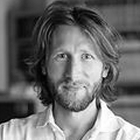 |
| WORKSHOP 2 |
|
 |
| . |
|
|
Nathan Goldman
Coll├©ge de France, Paris & International Solvay Institutes & Universit├® Libre de Bruxelles, Belgium
Invited ŌĆō Workshop 02: Quantum matter: theory & simulations
Nathan Goldman's research spans a wide range of topics within quantum many-body physics, with a particular emphasis on topological states of matter and their implementation in ultracold atomic systems and photonic platforms. In recent years, his studies have been notably directed toward the exploration of quantum geometry and artificial gauge fields within synthetic quantum matter, as well as periodically driven quantum systems.
|
|
|
|
|
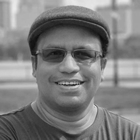 |
| KEYNOTE |
|
 |
| . |
|
|
M. Zahid Hasan
Princeton University, USA
Keynote ŌĆō Plenary Session
M. Zahid Hasan is the Eugene Higgins Professor of Physics at Princeton University. He received his Ph.D. from Stanford University in 2002 and, since that time, has been a major researcher in the field of Topological Quantum Matter. He has written over 280 peer-reviewed journal articles and is the most cited experimenter in the field. His funded research areas include search and discovery of novel phases of matter, emergent new particles, novel quantum effects, exotic superconductivity, quantum magnetism, spin liquids, Weyl magnets and superconductors, chiral materials, topological insulators, Higgs phenomena, kagome magnets and superconductors, anyon superconductivity, fractionalization and Kitaev materials, among others. He has worked at both StanfordŌĆÖs SLAC National Accelerator and at the Lawrence Berkeley National Laboratory. He is the recipient of numerous awards and honors, including the 2020 Ernest Orlando Lawrence Award for groundbreaking discoveries in topological insulators, topological magnets and Weyl conductors. He is the recipient of American Competitiveness & Innovation Fellowship ŌĆ£for leadership in the field of physicsŌĆØ by the U.S. National Science Foundation and has been listed in the ŌĆ£World's Most Influential Scientific Minds ListŌĆØ since 2014 onward. He is an elected Fellow of the American Academy of Arts and Sciences, and is the principal investigator of the Laboratory for Topological Quantum Matter and Advanced Spectroscopy at Princeton University.
|
|
|
|
|
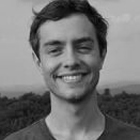 |
| INVITED |
|
 |
| . |
|
|
Max Hays
MIT, USA
Invited ŌĆō Plenary Session
|
|
|
|
|
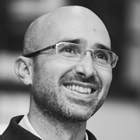 |
| WORKSHOP 4 |
|
 |
| . |
|
|
Benjamin Huard
Ecole Normale Sup├®rieure de Lyon, France
Invited ŌĆō Workshop 04: Quantum Computing
Benjamin Huard graduated from the Ecole Normale Sup├®rieure of Paris in 2003 and did his PhD studies in the Quantronics group at CEA Saclay (France) with Hugues Pothier. There, he performed experiments aiming at investigating the behavior of electrons in mesoscopic metallic and superconducting conductors. In 2006, he joined the Goldhaber-Gordon group at Stanford University (USA) as a post-doc fellow, and observed the Klein tunneling of electrons in graphene for the first time. In 2008, as a CNRS researcher, he cofounded the Quantum Electronics group at Ecole Normale Sup├®rieure (Paris, France) with Michel Devoret. Since then, he worked on superconducting circuits in which he worked on quantum measurement and feedback, thermodynamics of quantum information, microwave quantum optics. He is now a professor at Ecole Normale Sup├®rieure de Lyon where he moved in 2017 and leads the Quantum Circuit Group together with Audrey Bienfait. He is a scientific adviser of the Alice and Bob company since 2021, scientific adviser of CNRS Physics since 2024, deputy member of section 28 Conseil National des Universit├®s since 2024, and member of the editorial board of PRX since 2024
|
|
|
|
|
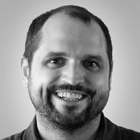 |
| INDUSTRIAL FORUM |
|
 |
| . |
|
|
Pau Jorba
Kiutra, Germany
Invited - Industrial Forum
PauŌĆÖs experience with cryogenics goes back to his masterŌĆÖs at the EPFL working on scanning hall probe microscopy at milli-Kelvin temperatures. He then moved to Munich where he completed his PhD on the investigation of new magnetic phases under high pressure using diamond anvil cells at low temperatures. PauŌĆÖs technical expertise is complemented by language skills in Spanish, Catalan, English, French and German. He joined kiutra in 2022 as a Sales Engineer and provides advice and technical support to our customers.
|
|
|
|
|
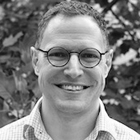 |
| WORKSHOP 7 |
|
 |
| . |
|
|
Ivan Kassal
University of Sydney, Australia
Invited ŌĆō Workshop 07: Quantum simulation
Ivan Kassal is a Professor of Chemical Physics and ARC Future Fellow in the School of Chemistry at the University of Sydney. He graduated from Stanford University and completed his PhD at Harvard University in 2010. He is a theorist working at the intersection of quantum science, chemistry, biophysics, and materials science. He pioneered some of the first applications of quantum computers to chemistry, showing they could dramatically accelerate difficult chemical calculations. He is a recipient of DECRA, Westpac, and Future fellowships, of the Australian Academy of Science Le F├©vre Medal for ŌĆ£outstanding basic research in chemistryŌĆØ and of the Royal Australian Chemical Institute's Physical Chemistry Lectureship for ŌĆ£outstanding early- and mid-career physical chemistsŌĆØ.
|
|
|
|
|
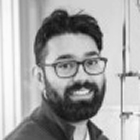 |
| INDUSTRIAL FORUM |
|
 |
| . |
|
|
Raphael Khan
Bluefors, Finland
Invited - Industrial Forum
Dynamic Senior Sales Engineer with a Ph.D. in Physics and a proven track record in driving revenue growth, fostering team development, and excelling in technical discussions. Passionate about advancing scientific innovation, particularly in quantum computing and cryogenics. Skilled in bridging the gap between complex technical concepts and practical business applications.
n my role as a Senior Sales Engineer at Bluefors Cryogenics since 2018, I've undertaken a variety of responsibilities beyond the typical sales engineer duties. Alongside my core duties, I've taken on recruitment efforts for sales engineers and coordinators, providing training and leadership to our team while fostering its growth. I've had the privilege of supervising and advising fellow sales professionals, contributing to Bluefors' impressive revenue growth from 60 million to 160 million euros. My involvement extends to various process developments, including lead processes and demand planning, as well as cross-departmental collaborations with R&D and product management. Additionally, I've played an active role in product launches and the ISO9001 certification process.
As a Sales Engineer at Bluefors, I specialized in providing solutions in the field of cryogenics, supporting clients in academia, startups, and companies. My role involved managing the lead-to-order process, cultivating and maintaining customer relationships, and engaging in technical discussions to tailor solutions to their specific requirements. Through these interactions, I gained a deep understanding of various research fields, particularly in quantum technology and quantum computing. Additionally, I represented Bluefors at conferences and in webinars, further expanding our network and visibility within the scientific community. Overall, I contributed to driving business growth and fostering partnerships that aligned with Bluefors' mission in advancing scientific innovation.
The subject of my thesis was non-linearities in nanomechanical systems (NEMS). NEMS have many applications such as accelerometers in modern cars or mass sensing. I analyzed and solved complex problems which require a strong knowledge in physics, mathematics and some skills in programing. I worked with experimentalists and gave suggestions for further investigations in their setup. I wrote articles in scientific journals and made presentation in conferences to show my findings to the scientific community.
|
|
|
|
|
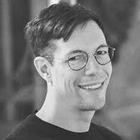 |
| WORKSHOP 7 |
|
 |
| . |
|
|
Andrew King
D-Wave, USA
Invited ŌĆō Workshop 07: Quantum simulation
Andrew King is a Senior Distinguished Scientist at D-Wave Systems, which he joined in 2013. He completed his Ph.D. in computer science at McGill University and was a postdoctoral researcher at Columbia University and Simon Fraser University. With a background in graph theory and discrete algorithms, he is an expert on quantum annealing, benchmarking, and simulation of quantum condensed matter. His most recent work concerns programmable quantum dynamics and their relevance to optimization and simulation tasks.
|
|
|
|
|
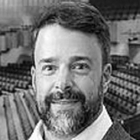 |
| WORKSHOP 6 |
|
 |
| . |
|
|
Ferdinand Kuemmeth
University of Regensburg, Germany
Invited ŌĆō Workshop 06: Topological quantum matter: electronics, spintronics, photonics & phononics
|
|
|
|
|
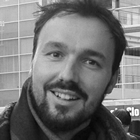 |
| WORKSHOP 4 |
|
 |
| . |
|
|
Romain Maurand
CEA, France
Invited ŌĆō Workshop 04: Quantum Computing
Romain Maurand is a research director at CEA Grenoble, France. He received a MSc and PhD in Condensed Matter Physics from Grenoble Alpes University (2011). During his postdoctoral research at the University of Basel in the group of prof. C. Sch├Čnenberger (2011-2013), he focused his experimental work on electron optics in ballistic graphene. He then moved to CEA Grenoble, France, first as a postdoc in the group of Dr. S. De Franceschi and since 2017 as a permanent researcher. There, he achieved the first spin qubit based on CMOS technology and pioneered spin qubit based on hole spin in silicon. His current research focuses on hybrid circuit quantum electrodynamics with hole spin qubit but also quantum devices based on germanium heterostructures.
|
|
|
|
|
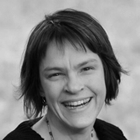 |
| WORKSHOP 6 |
|
 |
| . |
|
|
Julia S. Meyer
CEA-Grenoble, France
Invited ŌĆō Workshop 06: Topological quantum matter: electronics, spintronics, photonics & phononics
|
|
|
|
|
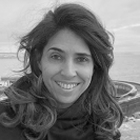 |
| TUTORIAL |
|
 |
| . |
|
|
Cristiane Morais Smith
Utrecht University, The Netherlands
Turorial Speaker
Morais Smith is a theoretical physicist working on strongly interacting systems at Utrecht University, the Netherlands. In collaboration with experimental colleagues, her group has pioneered the realization of quantum fractals in electronic quantum simulators. Morais Smith has published more than 170 papers and was invited to give about 400 talks. Among others, she was the recipient of the Dresselhaus Prize in 2016 and of the Emmy Noether distinction of the European Physical Society in 2019 ŌĆ£for her outstanding contributions to the theory of condensed matter systems and ultracold atoms to unveil novel quantum states of matterŌĆØ. In 2020, she was selected by the German Physical Society as one of the 175 most inspiring scientists in the world.
|
|
|
|
|
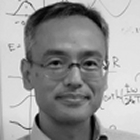 |
| KEYNOTE |
|
 |
| . |
|
|
Yasunobu Nakamura
University of Tokyo, Japan
Keynote ŌĆō Plenary Session
Yasu Nakamura started his research career at NEC Fundamental Research Laboratories in 1992, where he demonstrated the first coherent manipulation of a superconducting qubit in 1999 and met quantum information science. He spent a year as a Visiting Researcher at TU Delft from 2001 to 2002. Since 2012, he has been a Professor at The University of Tokyo. He has also been leading his research team at RIKEN since 2014. He is currently the Director of the RIKEN Center for Quantum Computing and the Project Leader of the MEXT Q-LEAP Flagship project on Superconducting Quantum Computing.
|
|
|
|
|
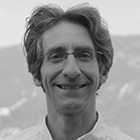 |
| TUTORIAL |
|
 |
| . |
|
|
Yann-Michel Niquet
CEA, France
Turorial Speaker
His area of expertise is the modeling of the structural and electronic properties of materials and nanostructures, from ab initio methods (density functional theory, GW, Bethe-Salpeter) to semi-empirical approaches such as tight-binding and the effective mass.
He received a PhD degree on the modeling of the electronic properties of nanostructures at IEMN, Lille, France (1998-2001), then worked on density functional theory as a postdoc in Louvain-la-Neuve, Belgium (2001-2003). He joined the laboratory of atomistic simulation (L_Sim) of the Institute for Nanosciences and Cryogenics (INAC) of the CEA Grenoble in 2003.
|
|
|
|
|
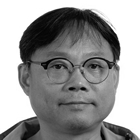 |
| INVITED |
|
 |
| . |
|
|
Soo-Hyon Phark
Center for Quantum Nanoscience, South Korea
Invited ŌĆō Plenary Session
Soo-hyon is currently working at Center for Quantum Nanoscience (QNS) of Institute for Basic Science in Republic of Korea. He got his PhD in Solid State Physics from Seoul National University (SNU) in 2006. He had worked as postdocs at SNU and Max-Planck-Institute of Microstructure Physics. His major has been studies on surface nanostructures using a UHV low temperature STM, in particular, spin-polarized STM of spin-resolved electronic structures in magnetic nanostructures. He joined QNS from Oct 2016 and is leading the team ŌĆ£Atomic Scale Qubit Platforms on SurfaceŌĆØ using a low-temperature STM equipped with electron spin resonance.
|
|
|
|
|
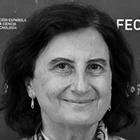 |
| INVITED |
|
 |
| . |
|
|
Gloria Platero Coello
ICMM-CSIC, Spain
Invited ŌĆō Plenary Session
Gloria Platero is Research Professor at the Materials Science Institute of Madrid, at the CSIC (Spanish Research Council), which is located at the excellence Campus CSIC-UAM (Autonomous University of Madrid).
She leads the group at ICMM: "New Platforms and Nanodevices for Quantum Simulation and Quantum Computation" https://wp.icmm.csic.es/npqsic/ and belongs to the University Institute Gregorio Mill├Īn on Nanoscience (Carlos III University of Madrid) and to the Quantum Technologies Platform of the CSIC.
She has given over hundred invited, keynote or plenary talks in international conferences and she has been invited to give seminars and make stays in many international research centers.
She has been Mercator Fellow at the University of Regensburg.
Gloria has supervised many PhD students, most of them are working successfully in Academia. ┬Ā
She is Fellow or the APS (Quantum Information Division), Chair of the C8 IUPAP Commission on Semiconductor Physics, and Vice-president of the IUPAP.┬Ā┬Ā
Her research belongs to the field of Quantum Nanotechnologies. She investigates the theory of spin qubits in quantum dot arrays, their manipulation and the transfer of quantum information in these systems for quantum computation purposes. Time periodic driven systems, Floquet engineering, is one of her main topics of research.
She investigates as well the interplay between topology and driving and the role of topological edge states for the transfer of quantum information in different platforms. |
|
|
|
|
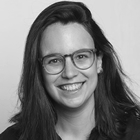 |
| WORKSHOP 2 |
|
 |
| . |
|
|
Raquel Queiroz
Columbia University in the City of New York, USA
Invited ŌĆō Workshop 02: Quantum matter: theory & simulations
Raquel was born in Lisbon Portugal, where she graduated from Instituto Superior Tecnico in 2009. After that she went to do a Masters in Theoretical Physics at Imperial College London, and completed her PhD in 2015 at Max Planck Institute of Solid State Physics in Stuttgart. Raquel did a postdoc in Weizmann Institute of Science, Israel, and is since 2022 an Assistant Professor of Physics at Columbia University. Her group investigates quantum phenomena of condensed matter systems focusing on the geometry and topology of electronic band structures. She received the NSF career award in 2024 and the Sloan Research Fellowship in 2025.
|
|
|
|
|
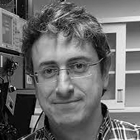 |
| WORKSHOP 6 |
|
 |
| . |
|
|
Mikael Rechstmann
The Pennsylvania State University, USA
Invited ŌĆō Workshop 06: Topological quantum matter: electronics, spintronics, photonics & phononics
Mikael Rechtsman is a Professor of Physics at the Pennsylvania State University in the US, and currently the visiting QuantAlps professor of physics at the N├®el Institute of the CNRS in Grenoble, France. His research group carries out both experimental and theoretical research in nonlinear, quantum and topological photonics. He is perhaps best known for the first demonstration of a topological insulator for light.
|
|
|
|
|
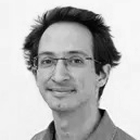 |
| WORKSHOP 7 |
|
 |
| . |
|
|
Martin Ringbauer
Universit├żt Innsbruck, Austria
Invited ŌĆō Workshop 07: Quantum simulation
Martin Ringbauer received his PhD in experimental quantum optics from the University of Queensland in 2026. He is now an assistant professor at the University of Innsbruck with a focus on new approaches to quantum computing and simulation, particularly using high-dimensional encodings in trapped ions. In 2022 he received an ERC Starting Grant for his work on qudit-based quantum computing. His research interests include fundamental questions in quantum physics, as well as quantum computing, quantum error correction, and quantum simulation.
|
|
|
|
|
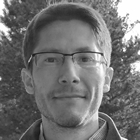 |
| INVITED |
|
 |
| . |
|
|
Benjamin Sacepe
Institut N├®el - CNRS, France
Invited ŌĆō Plenary Session
|
|
|
|
|
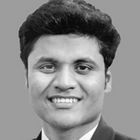 |
| INDUSTRIAL FORUM |
|
 |
| . |
|
|
Anurag Saha Roy
Qruise, Germany
Invited - Industrial Forum
Anurag is the Chief Product Officer at Qruise. He is an experienced engineer and entrepreneur with a background in cold atoms and superconducting qubits based quantum technologies. At Qruise, he leads a team of physicists and software engineers developing tools to automate and accelerate the development of quantum devices through faster & better calibration and characterisation. Prior to joining Qruise, he was at the Centre for Quantum Technologies in Singapore and the J├╝lich Research Centre in Germany.
|
|
|
|
|
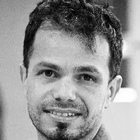 |
| WORKSHOP 1 |
|
 |
| . |
|
|
Giordano Scappucci
Delft University of Technology, The Netherlands
Invited ŌĆō Workshop 01: Quantum materials: growth, characterization & device fabrication
Giordano Scappucci earned his MSc in Physics from Universit├Ā La Sapienza in Rome in 2000, followed by a PhD in Physics from Universit├Ā Roma TRE in 2004. He began his research career at the University of New South Wales in Sydney, Australia, where he contributed to the Centre for Quantum Computing Technology. In 2015, he became a Group Leader at QuTech, TU Delft, in the Netherlands, where he has played a pivotal role in advancing the field of quantum computing with semiconductor spin qubits. The silicon-germanium quantum materials developed by GiordanoŌĆÖs team enabled landmark experiments in the field of quantum information and are used by researchers globally for the development of quantum technologies.
|
|
|
|
|
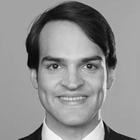 |
| WORKSHOP 1 |
|
 |
| . |
|
|
Niels B. M. Schr├Čter
Max Planck Institute for Microstructure Physics in Halle, Germany
Invited ŌĆō Workshop 01: Quantum materials: growth, characterization & device fabrication
Since 2021, Niels B. M. Schr├Čter has been leading an independent Max Planck Research Group at the Max Planck Institute of Microstructure Physics in Halle, Germany. He earned his DPhil in Physics from the University of Oxford in 2018, followed by postdoctoral research at the Paul Scherrer Institute in Switzerland. He is the recipient of the 2021 IBM Condensed Matter Physics Award and the 2025 IUPAP C10 Early Career Scientist Award for his discovery of chiral topological semimetals and holds an ERC Starting Grant to further explore this novel material class. His research spans the spectroscopy and synthesis of quantum materials, with a particular focus on structurally chiral materials that exhibit unique chiral electronic, spin, and orbital textures, offering potential applications in next-generation technologies.
|
|
|
|
|
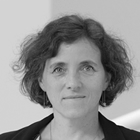 |
| KEYNOTE |
|
 |
| . |
|
|
Pascale Senellart-Mardon
C2N/University Paris Saclay, France
Keynote ŌĆō Plenary Session
Graduated from ├ēcole Polytechnique and Doctor in Quantum Physics from Universit├® Paris 6, Pascale Senellart joined the CNRS in 2001. She was appointed senior researcher in 2011 and associate professor at Polytechnique in 2014. Her research activity is at the interface between nanosciences, semiconductor physics and quantum optics. She received the CNRS Silver Medal in 2014, the Prix Mergier-Bourdeix in 2021, the Prix Jean Ricard in 2023 and was elected member of the French Academy of Science in 2022 and of the French academy of technologies in 2024. She is co-founder and scientific advisor of the C2N spin-off Quandela who develops solutions for optical quantum computing.
|
|
|
|
|
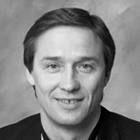 |
| INVITED |
|
 |
| . |
|
|
Vladimir M. Shalaev
Purdue University, USA
Invited ŌĆō Plenary Session
Vladimir M. Shalaev, Scientific Director for Nanophotonics at Birck Nanotechnology Center and Distinguished Professor of Electrical and Computer Engineering at Purdue University, specializes in nanophotonics, plasmonics, optical metamaterials and quantum photonics. Prof. Shalaev has received several awards for his research, including the APS Frank Isakson Prize for Optical Effects in Solids, the Optica (formerly, Optical Society of America) Max Born Award for his pioneering contributions to the field of optical metamaterials, the Willis E. Lamb Award for Laser Science and Quantum Optics, IEEE Photonics Society William Streifer Scientific Achievement Award, Rolf Landauer medal of the ETOPIM (Electrical, Transport and Optical Properties of Inhomogeneous Media) International Association, the UNESCO Medal for the development of nanosciences and nanotechnologies, and the OSA and SPIE Goodman Book Writing Award. Prof. Shalaev is recognized as a Highly Cited Researcher in physics by the Web of Science Group for 7 consecutive years, in 2017-2023. He is a Fellow of the IEEE, APS, SPIE, MRS and Optica.
|
|
|
|
|
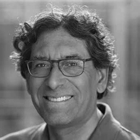 |
| WORKSHOP 7 |
|
 |
| . |
|
|
Enrique Solano
Kipu Quantum, Germany
Invited ŌĆō Workshop 07: Quantum simulation
Enrique Solano lives in Berlin, Germany, where he develops entrepreneurial activities as Chief Visionary Officer at Kipu Quantum, a startup designing quantum computing solutions to bring quantum advantage to the present for industry use cases. As a physicist, he has worked in Peru, France, Brazil, Germany, China, and Spain, occupying leading positions in academic institutions. He constantly explores interdisciplinary ideas and initiatives merging arts, science, technology, and entrepreneurship. Apart from his pioneering works in quantum computing and quantum technologies, he develops novel interdisciplinary fields like quantum arts, neuromorphic quantum computing, quantum brain networks, and the quantum metaverse.
|
|
|
|
|
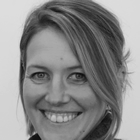 |
| INDUSTRIAL FORUM |
|
 |
| . |
|
|
Aleksandra Soltamova
Qblox BV, The Netherlands
Invited - Industrial Forum
Dr. Aleksandra Soltamova is the Head of Sales, Application Science, and Quantum Success at Qblox, a leading quantum computing scale-up specializing in quantum control electronics. Aleksandra holds a PhD and MSc in Physics from St. Petersburg State Polytechnical University, where her research focused on optical centers in diamonds. Her scientific work on diamond-based optical centers has been published in internationally recognized journals. To complement her technical expertise, Aleksandra also earned an MTEC MSc from ETH Zurich. She spent several years in the medical device industry, bringing advanced technologies to market. At Qblox, Aleksandra leads efforts to bridge scientific innovation with scalable and deployable quantum systems, advancing the company's mission to "build quantum, together" with its customers and partners.
|
|
|
|
|
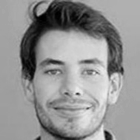 |
| WORKSHOP 3 |
|
 |
| . |
|
|
Daniel Stilck Fran├¦a
├ēcole Normale Sup├®rieure de Lyon, France
Invited ŌĆō Workshop 03: Quantum information
Daniel Stilck Franca is a researcher in quantum computation and information. He did his PhD at the mathematics institute of TU Munich in 2018. After that, he did a postdoc in the University of Copenhagen in the QMATH group, before joining Inria and ENS Lyon in 2022 as a permanent researcher. After two years in France, he is now back in Copenhagen, working as an associate professor at the Quantum for Life Center.
|
|
|
|
|
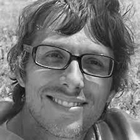 |
| WORKSHOP 3 |
|
 |
| . |
|
|
Luca Tagliacozzo
CSIC, Spain
Invited ŌĆō Workshop 03: Quantum information
Luca Tagliacozzo is a Tenured Scientist at the Institute of Fundamental Physics of CSIC in Madrid. There he works on the quantum many body problem through the lenses of field theory and quantum information. In particular he uses and develops tensor networks to characterise many-body quantum systems at and out of equilibrium. He is well known for the formulation of the finite-entanglement scaling hypothesis, the identification of different regimes of causality in the spread of correlations in long-range quantum systems and his characterisation of lattice gauge theories with tensor networks and quantum simulators. Recently he has focused on identifying novel measures of quantum complexity including generalized temporal entropies relevant to the simulation of the out-of-equilibrium dynamics with tensor networks.
|
|
|
|
|
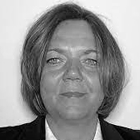 |
| INDUSTRIAL FORUM |
|
 |
| . |
|
|
Jelena Trbovic
QuantrolOx, Finland
Keynote - Industrial Forum
Jelena is a physicist and expert in quantum technologies, nanoelectronics, and materials science. Following an academic career in the USA and Switzerland, she transitioned to industry in 2012 by joining Zurich Instruments, where she served as Applications, Product, and Business Development Manager for Quantum Technologies. There, she deepened her expertise in quantum control electronics and played a key role in driving its adoption within the global research community. Currently serving as VP of Business Development at QuantrolOx, she combines scientific expertise with strategic market insight to accelerate the global adoption of the companyŌĆÖs Quantum EDGE software.
|
|
|
|
|
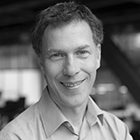 |
| INVITED |
|
 |
| . |
|
|
Lieven Vandersypen
Tudelft/QuTech, The Netherlands
Invited ŌĆō Plenary Session
Lieven Vandersypen (Leuven, Belgium, 1972) studied Mechanical Engineering at the KU Leuven and received a MSc and PhD in Electrical Engineering from Stanford University (2001). He then moved to TU Delft, the Netherlands, first as a postdoc and since 2006 as Antoni van Leeuwenhoek professor. He leads a group that pioneered quantum computing and simulation based on electron spins in semiconductor quantum dots. Prof. Vandersypen received Starting, Synergy and Advanced grants of the European Research Council, is a fellow of the American Physical Society (APS), a member of the Royal Netherlands Academy of Arts and Sciences (KNAW) and the Royal Holland Society of Sciences and Humanities (KHMW), and was a member of the Young Academy of the KNAW. He was selected as an Outstanding Referee of the APS, received the IUPAP Young Scientist Prize for Semiconductor Physics, the Nicholas Kurti European Science Prize, and the Spinoza Prize, the highest scientific award in the Netherlands.
|
|
|
|
|
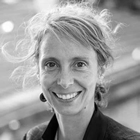 |
| INDUSTRIAL FORUM |
|
 |
| . |
|
|
Maud Vinet
Quobly, France
Keynote - Industrial Forum
Maud Vinet is the CEO of Quobly, the France-based quantum startup founded in 2022. A major milestone on MaudŌĆÖs journey to quantum was her tenure at CEA-Leti, a world-leading RTO specializing in semiconductor devices. Just before founding Quobly, she ran the organizationŌĆÖs pioneering quantum computing R&D program, laying the foundation for a large-scale quantum computer based on silicon qubits.
|
|
|
|
|
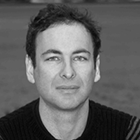 |
| TUTORIAL |
|
 |
| . |
|
|
Xavier Waintal
CEA Grenoble, France
Turorial Speaker
Xavier Waintal graduated from Polytechnique school, Paris area, in 1995, did a master of theoretical physics at Ecole Normale Superieure Paris, and moved on to the group of J-L Pichard in Saclay for his PhD (1999). He spent two years as a postdoc in P. Brouwer's group in Cornell University, USA, and was hired as a permanent researcher in CEA Saclay in 2002. In 2009, X. Waintal moved to INAC, CEA Grenoble where he have remained since and works as Research Director at CEA Grenoble, IRIG Pheliqs (France).
|
|
|
|
|
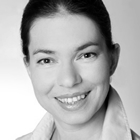 |
| WORKSHOP 5 |
|
 |
| . |
|
|
Eva Weig
TUM, Germany
Invited ŌĆō Workshop 05: Quantum sensing
Eva Weig is a Full Professor at the School of Computation, Information and Technology of the Technical University of Munich (TUM) in Germany. She holds the Chair of Nano and Quantum Sensors and is a Director of the TUM Zentrum f├╝r Quantum Engineering (ZQE). Before joining TUM in 2020, she spent eight years as a Full Professor at the Department of Physics at the University of Konstanz in Germany. Eva got a PhD in Physics from Ludwig-Maximilians-University (LMU) in Munich, Germany, in 2004, where she also worked as a Junior Research Group Leader following her postdoc at the California NanoSystems Institute at the University of California at Santa Barbara (UCSB).
|
|
|
|
|
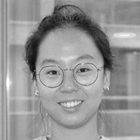 |
| WORKSHOP 4 |
|
 |
| . |
|
|
C├®cile Yu
TU Delft, The Netherlands
Invited ŌĆō Workshop 04: Quantum Computing
|
|
|
|
|
| |
|
|


